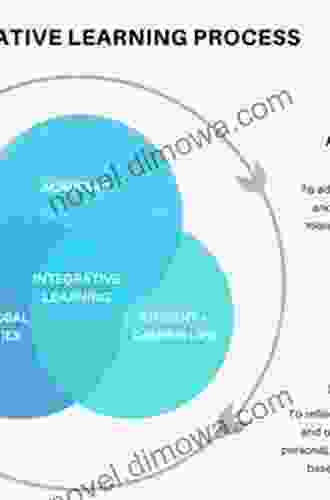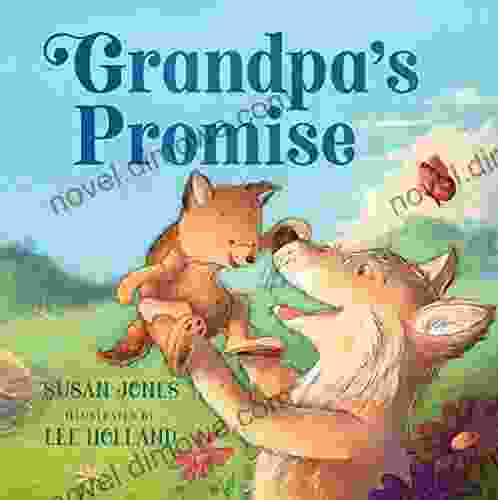Unveiling the Dangers: A Comprehensive Guide to Toxic Chemicals and Their Impact on Our Health

In the modern world, we are surrounded by a plethora of chemicals, many of which play essential roles in our daily lives. However, alongside these benefits, there lies a hidden danger: the presence of toxic chemicals that pose significant risks to our health and the environment.
This comprehensive guide delves into the world of toxic chemicals, exploring their development, the risks they pose, and the scientific evidence that underscores these concerns. By understanding the complexities of this issue, we can empower ourselves to make informed decisions, advocate for safer products, and work towards a healthier future for generations to come.
5 out of 5
| Language | : | English |
| File size | : | 2371 KB |
| Text-to-Speech | : | Enabled |
| Screen Reader | : | Supported |
| Enhanced typesetting | : | Enabled |
| Word Wise | : | Enabled |
| Print length | : | 416 pages |
| Lending | : | Enabled |
The Development of Toxic Chemicals
The development of toxic chemicals has a long history, dating back to the Industrial Revolution. As industries grew and new technologies emerged, the demand for synthetic chemicals skyrocketed, leading to the creation of countless new substances.
Initially, little consideration was given to the potential hazards of these chemicals. It was not until the mid-20th century that scientists began to uncover the devastating effects that some chemicals could have on human health and the environment.
One of the most infamous examples is the widespread use of the pesticide DDT. Initially hailed as a miracle cure for malaria, it was later discovered that DDT had severe long-term effects on wildlife, including the thinning of eggshells in birds, which led to population declines.
The Risks of Toxic Chemicals
Toxic chemicals pose a wide range of risks to human health, including:
- Cancer
- Birth defects
- Reproductive problems
- Immune system disFree Downloads
- Neurological damage
- Developmental disabilities
The effects of toxic chemicals can vary depending on the type of chemical, the level of exposure, and the individual's susceptibility. Some chemicals may cause immediate health effects, while others can have long-term consequences that may not manifest for years or even decades.
Children are particularly vulnerable to the effects of toxic chemicals due to their developing bodies and immature immune systems. Exposure to certain chemicals during pregnancy and early childhood can have lifelong consequences.
The Scientific Evidence
The scientific evidence linking toxic chemicals to adverse health effects is overwhelming. Numerous studies have shown associations between exposure to toxic chemicals and a variety of health problems.
One of the most comprehensive studies on the health effects of toxic chemicals is the National Toxicology Program's Report on Carcinogens. This report identifies hundreds of chemicals that have been shown to cause cancer in animals or humans.
Other studies have linked exposure to toxic chemicals to reproductive problems, immune system disFree Downloads, and neurological damage. The evidence is particularly strong for chemicals that are known to be endocrine disruptors, which can interfere with the body's hormonal system.
The Role of Regulation
Given the significant risks posed by toxic chemicals, it is essential that governments take action to regulate their use. Chemical regulation aims to protect human health and the environment by controlling the production, use, and disposal of toxic chemicals.
In the United States, the Environmental Protection Agency (EPA) is the primary agency responsible for regulating toxic chemicals. The EPA has a variety of programs in place to assess the risks of chemicals, set limits on their use, and enforce compliance with regulations.
However, chemical regulation is a complex and challenging task. There are thousands of chemicals in use today, and it is impossible to test every chemical for every possible health effect.
The Importance of Consumer Awareness
While regulations play an important role in protecting public health, consumers also have a responsibility to be aware of the risks of toxic chemicals and to make informed choices about the products they use.
There are a number of things that consumers can do to reduce their exposure to toxic chemicals, including:
- Choosing products that are made with safer ingredients
- Avoiding products that contain known toxic chemicals
- Reading product labels carefully
- Following the directions for use
- Properly disposing of hazardous chemicals
By taking these steps, consumers can help to reduce their own risk of exposure to toxic chemicals and protect their families and communities.
Toxic chemicals pose a serious threat to our health and the environment. However, by understanding the risks, supporting regulations, and making informed choices, we can work together to reduce our exposure to these harmful substances and create a healthier future for all.
This comprehensive guide has provided an overview of the development of toxic chemicals, the risks they pose, the scientific evidence supporting these concerns, the role of regulation, and the importance of consumer awareness.
By arming ourselves with knowledge, we can empower ourselves to make informed decisions and advocate for a safer, healthier world.
Additional Resources
- EPA's Chemical Research
- NIEHS's Research Programs
- ATSDR's Toxicological Profiles
- American Cancer Society's Chemicals Linked to Cancer
5 out of 5
| Language | : | English |
| File size | : | 2371 KB |
| Text-to-Speech | : | Enabled |
| Screen Reader | : | Supported |
| Enhanced typesetting | : | Enabled |
| Word Wise | : | Enabled |
| Print length | : | 416 pages |
| Lending | : | Enabled |
Do you want to contribute by writing guest posts on this blog?
Please contact us and send us a resume of previous articles that you have written.
 Book
Book Novel
Novel Page
Page Chapter
Chapter Text
Text Story
Story Genre
Genre Reader
Reader Library
Library Paperback
Paperback E-book
E-book Magazine
Magazine Newspaper
Newspaper Paragraph
Paragraph Sentence
Sentence Bookmark
Bookmark Shelf
Shelf Glossary
Glossary Bibliography
Bibliography Foreword
Foreword Preface
Preface Synopsis
Synopsis Annotation
Annotation Footnote
Footnote Manuscript
Manuscript Scroll
Scroll Codex
Codex Tome
Tome Bestseller
Bestseller Classics
Classics Library card
Library card Narrative
Narrative Biography
Biography Autobiography
Autobiography Memoir
Memoir Reference
Reference Encyclopedia
Encyclopedia William L Oberkampf
William L Oberkampf Sahoko Kaji
Sahoko Kaji S E Hinton
S E Hinton Sam Yulish
Sam Yulish Tracy C Davis
Tracy C Davis Sardar Singh
Sardar Singh Sam Dave Morgan
Sam Dave Morgan Steve Swayne
Steve Swayne Bill Stokes
Bill Stokes Sj Whitby
Sj Whitby Ted Bell
Ted Bell Roger Wilk
Roger Wilk Wolfgang Brugger
Wolfgang Brugger Vanessa Harbour
Vanessa Harbour T M Mcgee
T M Mcgee Zechariah Blanchard
Zechariah Blanchard Sherwood Neiss
Sherwood Neiss S K Pundir
S K Pundir Tom Cotter
Tom Cotter Robert Musil
Robert Musil
Light bulbAdvertise smarter! Our strategic ad space ensures maximum exposure. Reserve your spot today!

 George Bernard ShawAn AFK Five Nights at Freddy's: The Ultimate Guide to Surviving the Night
George Bernard ShawAn AFK Five Nights at Freddy's: The Ultimate Guide to Surviving the Night
 Craig CarterDouble Ranch: A Captivating Novel That Explores the Depths of Family and the...
Craig CarterDouble Ranch: A Captivating Novel That Explores the Depths of Family and the...
 Ralph Waldo EmersonField Manual FM Operations February 2008 US Army: A Comprehensive Manual for...
Ralph Waldo EmersonField Manual FM Operations February 2008 US Army: A Comprehensive Manual for... Langston HughesFollow ·3.5k
Langston HughesFollow ·3.5k Aubrey BlairFollow ·13.1k
Aubrey BlairFollow ·13.1k Raymond ChandlerFollow ·12k
Raymond ChandlerFollow ·12k William GoldingFollow ·13.9k
William GoldingFollow ·13.9k Stanley BellFollow ·7.7k
Stanley BellFollow ·7.7k William ShakespeareFollow ·7.7k
William ShakespeareFollow ·7.7k Gustavo CoxFollow ·8.6k
Gustavo CoxFollow ·8.6k Joseph ConradFollow ·13.3k
Joseph ConradFollow ·13.3k

 Leo Mitchell
Leo MitchellRide the Waves with "Surfer Girl" by Tricia De Luna: A...
Prepare to be...

 William Faulkner
William FaulknerCecil Griffiths: The Exiled Olympic Champion
Cecil Griffiths was...

 Cortez Reed
Cortez ReedLilly Blue Iris Stanley Gene: A Captivating Literary...
Enter a Realm of...

 Art Mitchell
Art MitchellFrom Vision to Implementation: An Integrative Approach to...
Unleash the Power...

 William Powell
William PowellDiscover the Heartwarming Journey of a Grandfather and...
In a quaint little town nestled amidst...
5 out of 5
| Language | : | English |
| File size | : | 2371 KB |
| Text-to-Speech | : | Enabled |
| Screen Reader | : | Supported |
| Enhanced typesetting | : | Enabled |
| Word Wise | : | Enabled |
| Print length | : | 416 pages |
| Lending | : | Enabled |








